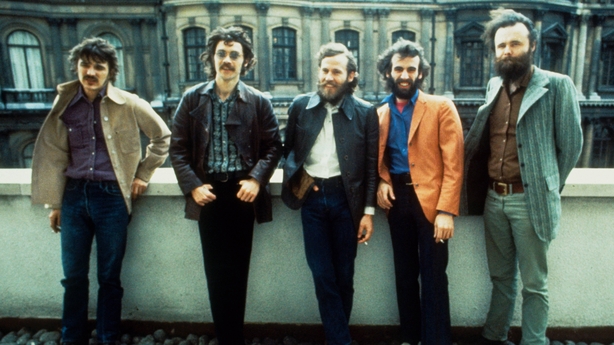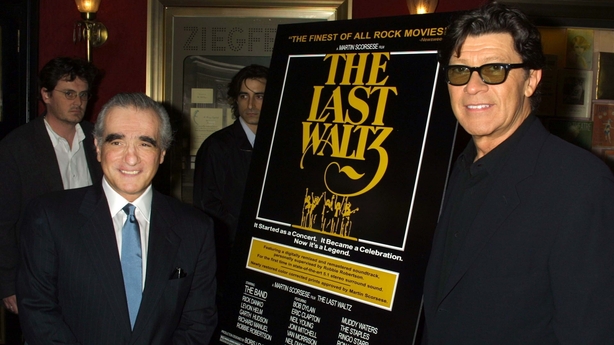The Canadian musician Robbie Robertson, guitarist and main songwriter of the seminal rock group The Band, has died, his manager has said in a statement. He was 80 years old.
As the ringleader of the Canadian-American group, Robertson penned The Band's most iconic songs including The Weight and The Night They Drove Old Dixie Down.
Statement from Robbie Robertson's family.
— Robbie Robertson (@r0bbier0berts0n) August 9, 2023
📸 Luis Sinco pic.twitter.com/J9c79003D5
His manager said in a statement Robertson was surrounded by family at the time of his death, which followed "a long illness".
Prior to his work and leadership with The Band, Robertson was a key collaborator with Bob Dylan, touring with him and playing on the album Blonde on Blonde.
Born on 5 July, 1943 in Toronto, Canada with both Mohawk and Jewish roots, Robertson worked on traveling carnivals in his early teenage years before joining and starting a variety of bands.
"I've been playing guitar for so long I can't remember when I started," he told Rolling Stone magazine in 1968. "I guess I got into rock and roll like everybody else."
He joined the backing band of Ronnie Hawkins, a rockabilly star, when he was just 16, where he eventually met fellow musicians Rick Danko, Garth Hudson, Richard Manuel and Levon Helm.
The group formed a strong bond, and they became Dylan's backing band in the mid-1960s for his infamous first electric tour.
They also played with the icon on his much-bootlegged Basement Tapes.
After several name changes, the musicians became known as The Band.

Robertson's history-minded compositions were masterful yarns that evoked the wilds of America and the characters who inhabited them, and in particular, focused on the American South.
The Weight is a regular on all-time greatest songs lists - a folk tune with country and gospel elements as well as Biblical allusion.
The group played Woodstock and cut a string of albums including Music from Big Pink, The Band and Cahoots. The Band split up in 1976 with a farewell concert in San Francisco, immortalised on film by director Martin Scorsese in The Last Waltz.
The film, theatrically released in 1978, has become known as a critically acclaimed pioneering rock documentary.
It also ushered in Robertson's longtime collaboration and friendship with Scorsese, who hired the guitarist to soundtrack The Color of Money, and as a musical supervisor on a string of his films including Casino and Gangs of New York.
At the time of his death, Robertson had been working on a follow-up to his memoir Testimony and had just completed scoring Scorsese's Killers of the Flower Moon, which is set for release in the autumn.
Hailing his friend as "a giant", Scorsese called Robertson "a constant in my life and work".
"Long before we ever met, his music played a central role in my life - me and millions and millions of other people all over this world.

"The Band's music, and Robbie's own later solo music, seemed to come from the deepest place at the heart of this continent, its traditions and tragedies and joys," Scorsese said in a statement - one of many tributes to Robertson.
"His effect on the art form was profound and lasting."
Robertson did not tour again after The Last Waltz but did make a string of solo albums, starting in 1987, when he released Robbie Robertson.
The acclaimed solo debut featured the classic track Somewhere Down the Crazy River and guest appearances by U2.
He remained a beloved figure of rock and folk, both for his guitar chops and his poetry.
"I thought of a couple of words that led to a couple more," he told Rolling Stone in 1969, when asked how he penned the classic The Weight.
"The next thing I know I wrote the song," Robertson continued.
"We just figured it was a simple song, and when it came up we gave it a try and recorded it three or four times."
"We didn't even know if we were going to use it."
Source: AFP

